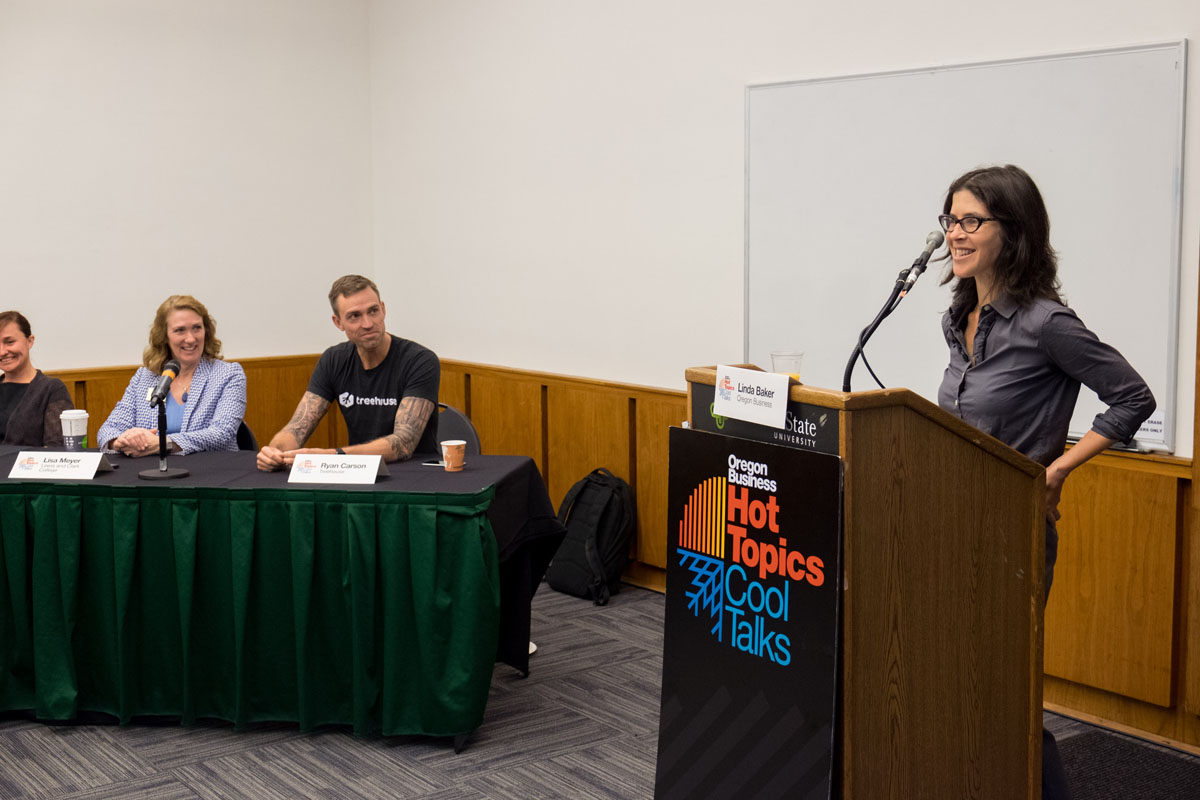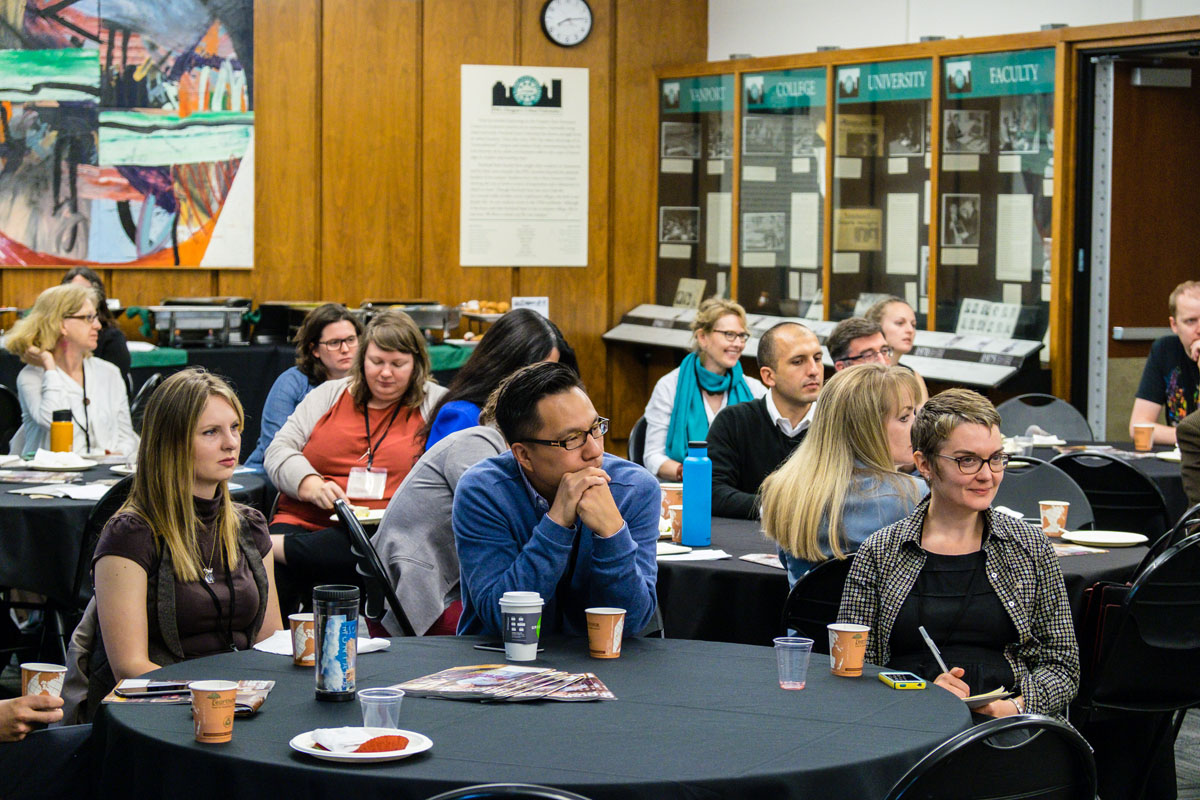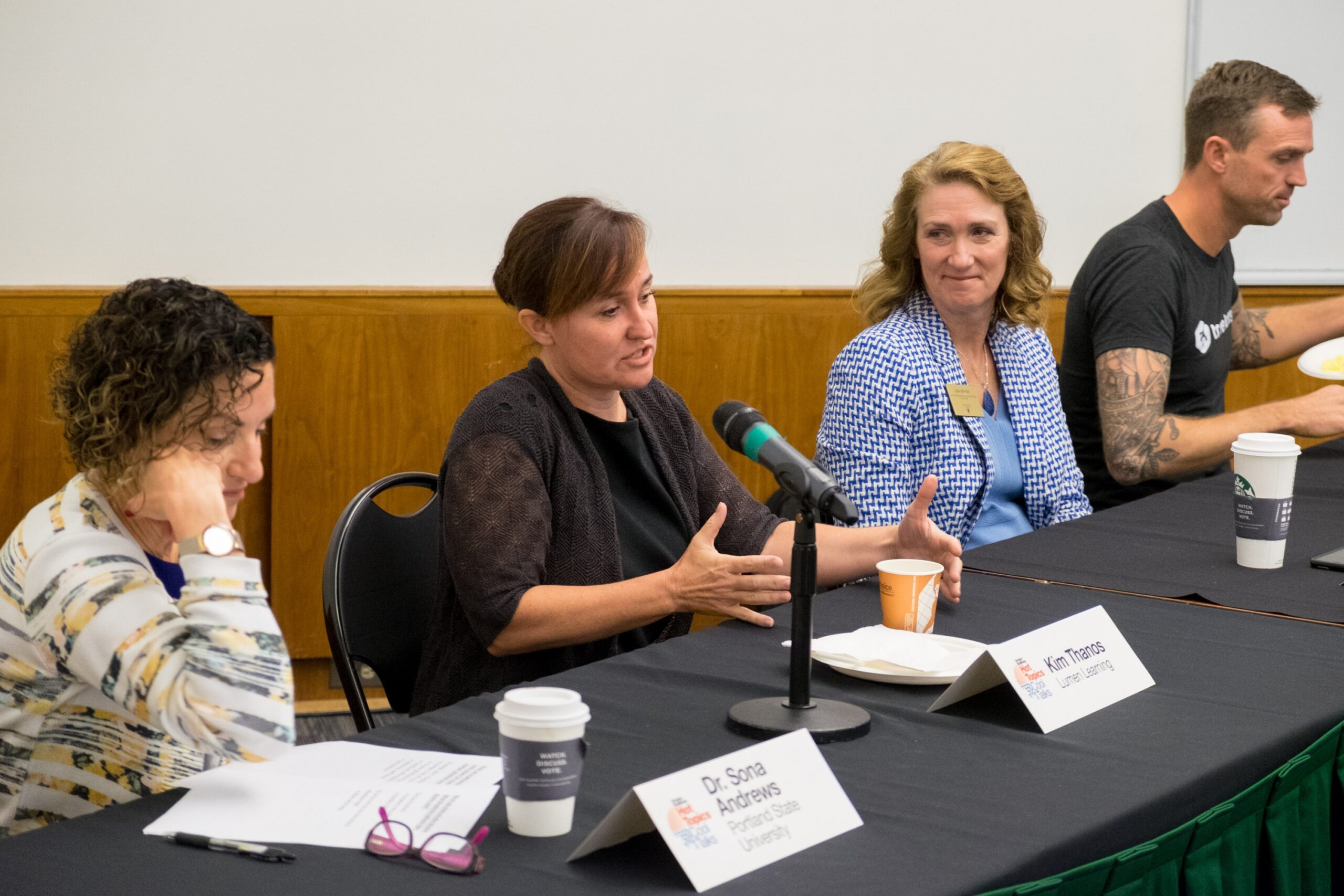The boundaries between business and academia are becoming increasingly permeable.
Private sector ventures are springing up in higher education as the traditional university model collapses under escalating costs. But colleges are responding by becoming more market oriented, blurring the line between the business and academic worlds.
The drive to be more relevant means that higher education institutions have to provide more flexible programs to meet the changing needs of their students.
At Portland State University that means offering a mix of online courses, credit for prior experience in a subject and traditional face-to-face teaching, said Sona Karentz Andrews, provost and vice president of academic affairs.
“We are seeing a blurring of disciplinary boundaries,” said Andrews, speaking at a Hot Topics Cool Talks breakfast event hosted by Oregon Business on Tuesday.
Eighty percent of Portland State University students take online courses, making it the biggest growth area for the university, said Andrews. The institution has also looked at ways of cutting tuition costs, such as investing in open educational resources, to save students money on course material.
“We are often accused of being an ivory tower. We don’t have one. Partnerships with business and industry are really important to us,” she said.

Kim Thanos, founder and CEO of Lumen Learning, a provider of online open educational resources, says higher education institutions are sometimes hesitant to work with the private sector on educational solutions because of the latter’s for-profit status.
She said she wants to work toward an environment where there is no “confusion” between the worlds of business and education.
The unsustainably high cost of higher education tuition has led to the rise of private-sector online schools that teach subjects at a fraction of the cost of a traditional university.
These businesses also see opportunities for colleges and universities to enhance educational experiences through face-to-face interactions.
Ryan Carson, CEO of Treehouse, a start-up providing online coding classes, said the company has very little overhead and can keep fees low because its courses are taught fully online.
He said his online courses do not replace two- and four-year degrees and sees a future where colleges and universities can curate educational “meet-ups” that complement online teaching.
Treehouse recently went through restructuring to stay profitable. In September it announced staff cut backs and got rid of its four-day workweek.
In today’s rapidly changing, technology-driven work environment, having a liberal arts degree is still relevant, panelists said.
Lisa Meyer, dean for enrollment and communications at Lewis & Clark college, said a liberal arts degree gives students critical thinking skills that are essential to employers.
Technology will not completely replace the physical presence that universities have, said Meyer. But higher education institutions need to diversify to stay relevant. “To say you can have one model that works for everybody is hubris,” she said.
Oregon Business editor Linda Baker moderated the 90-minute discussion.


